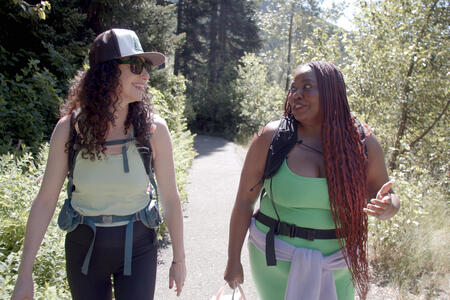President Obama said something last week that should define the coming election – and the policy choices ahead.
The idea was that if we just had blind faith in the market, if we let corporations play by their own rules, if we left everyone else to fend for themselves that America would grow and America would prosper,” the president said in Parma, Ohio. And for a time this idea gave us the illusion of prosperity. We saw financial firms and CEOs take in record profits and record bonuses. We saw a housing boom that led to new homeowners and new jobs in construction. Consumers bought more condos and bigger cars and better TVs.
He continued: "I ran for President because I believed that this kind of economy was unsustainable –- for the middle class and for the future of our nation."
This is what this country needs to talk about, how do we go about building a sustainable economy?
That topic makes for lousy politics because it’s so much easier to sell voters on a promise of growth. No politician wants to say: We are the generation of less.
One example of that is shrinking government. No matter who wins the coming election it’s pretty clear that government at all levels will reduce their number of employees. The federal government is the largest U.S. employer with some 2 million civilian workers; state and local governments employ another 16-plus million folks. (Federal employment, as a ratio of employees to Americans, has been declining steadily since 1953 and state governments have cut some 242,000 jobs since August 2008.) State government budgets are in far worse shape than the headlines – partly because of temporary federal support and partly because of gimmicks (like not paying bills or hiding pension obligations) that only work for a while. The key is that state budgets are not sustainable when you match revenues against the promises made to a variety of constituents.
But consider what a shrinking government means in the context of unemployment. Already there are roughly five applicants for every job opening; a number that will grow when governments layoff more people.
These trends will have profound implications for Indian Country and tribal governments down the road. On the plus side, smaller county governments might be more inclined to work with tribes as a way to serve (look at the number of police and sheriff’s offices saying budget cuts no longer allow them to cover their geographical areas). On the other hand, tribes are not immune from shrinking revenue and budget cuts.
And it’s not just government that’s doing less.
Many of us are in the position of earning less – sometimes making substantially less than we did before the recession started. To make our household budgets work, most of us cut back our spending.
As ABC News put it last month: “For millions of working Americans, the phenomenon economists call "median wage stagnation" has become a way of life. For decades, their annual incomes have remained virtually the same, leaving many just a paycheck or two from the street.”
Another measure of less is our driving habits. We did drive more last year than the year before … by 1/10th of one percent. As a report a couple of years ago by the Brookings Institution put it:
“Amid the current recession and declining gas prices, drops in driving should continue, creating dramatic impacts in the realms of transportation finance, environmental emissions, and development patterns. Government officials and policy makers at all levels must account for these potential long-term consequences.”
And so the potential long-term consequences of a nation of less require a different way of thinking and governing. How do we substitute “sustainability” for “growth” in our conversations about the choices that are ahead? How do we redefine what less looks like? And, most important, how do we tell a story about “less?”
I, like every parent, wants the promise of a better life for my children. But a better life doesn’t mean we need more. Instead our promises (and our stories) need to talk about a sustainable future.


